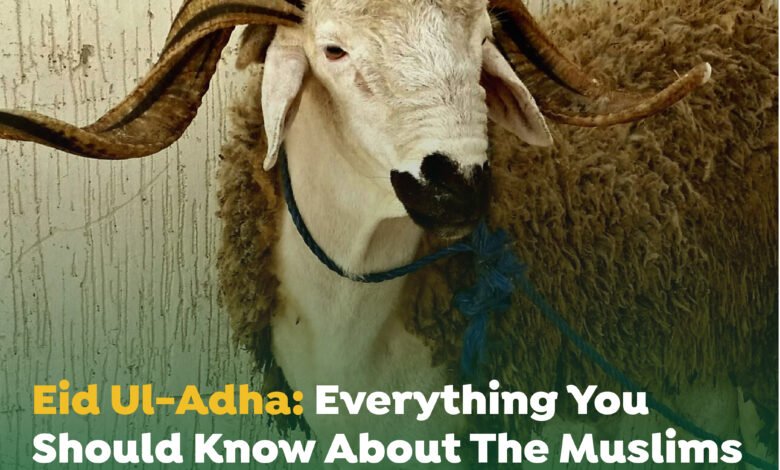EID UL-ADHA: Everything you should know about the Muslims ‘Festival of Sacrifice‘

Eid ul-Adha, the festival of sacrifice, is unarguably the biggest Muslim festival. It’s marked annually in remembrance of Prophet Ibrahim’s willingness to offer his son Ismail (AS) for sacrifice after he had a dream where Allah (SWT) instructed him to do so. Upon waking, the Prophet, in obeisance to the command of the Almighty Allah, took his beloved son to Mount Arafat to perform the ritual.
Ibrahim (AS) did not know what was in the offing that Allah (SWT) was testing his faith in Him. However, while he was about to sl*ughter his son as some rams will be today, Allah (SWT) intermediated, saying, “O Ibrahim! You have fulfilled the vision, and now you will be rewarded!” In a surprising manner, Almighty Allah then sent a ram to him to use for the sacrifice in replace of his beloved son.
Islamic clerics have countered the false claims that had it been Allah (SWT) didn’t offer Prophet Ibrahim the ram in replace of Ismail, that was how Muslims would be sacrificing their first son annually in obeisance to the command of the Almighty Allah. They asserted that Islam is a religion of peace and, therefore, does not encourage using humans for sacrifice. They noted that Allah (SWT) only tested Ibrahim’s faith and steadfastness.
How is Eid ul-Adha celebrated?
Eid ul-Adha falls on day 10 of the 12th and final Hijrah month of Dhu al-Hijja, and celebrations and observances are generally carried forward to the three following days, called the Ayyamul-Tashreeq days. However, on Eid, Muslims all over the world troop to the praying grounds in their beautiful dresses, most sewn or bought for the festival. They observe prayers at the praying grounds, where they thank the Almighty Allah for his blessings.
After the prayers, they offer alms to the needy before they proceed to their homes, sometimes in procession. The rams tied to poles for days are loosened and slaughtered, shared with family and friends. This act of kindness will enable fellow Muslims who couldn’t buy rams for Eid ul-Adha to have something to munch on in the course of celebrating the festival.
Hajj and Ileya
The Hajj pilgrimage is one of the five pillars of Islam. It’s the fifth, mandated for those who can afford it. Eid ul-Adha is celebrated on the last day of Hajj. Muslims who want to partake in Hajj will have to make a pilgrimage to Makkah in Saudi Arabia. It’s an annual religious act that enables Muslims to perform acts of worship and renew their faith and sense of purpose in this world. It also allows them to stand before the sanctified Ka’bah and make some supplication before Allah (SWT).
In Nigeria, some Muslims travel to their ancestral homes to celebrate Eid ul-Adha. Aside from the fact that the feast of sacrifice allows these Muslims to make sacrifices, revel, worship, and comfort one another, it also reunites extended families and old friends.




